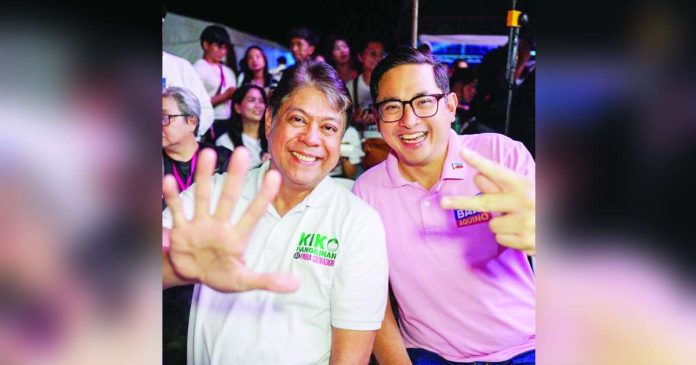
ILOILO – Former senator Bam Aquino and opposition figure Francis “Kiko” Pangilinan emerged as the top senatorial bets in Iloilo Province in the recently concluded May 12 midterm elections, securing nearly one million combined votes — a decisive show of support that surprised political analysts and defied pre-election surveys.
Based on the official Certificate of Canvass released by the Commission on Elections (Comelec) Iloilo, Aquino topped the senatorial race in the province with 522,888 votes, followed by Pangilinan with 412,202 votes.
They were trailed by other candidates who made it to Iloilo’s Top 12, including Erwin Tulfo (407,317), Bong Go (379,664), Pia Cayetano (312,176), Ping Lacson (304,800), Lito Lapid (300,633), Tito Sotto (280,268), Camille Villar (275,636), Manny Pacquiao (275,341), Bong Revilla (257,019), and Ben Tulfo (252,244).
Completing the province’s Top 15 were Abby Binay (241,950), Bato Dela Rosa (211,794), and Willie Revillame (196,754).
The province recorded an impressive 86.10% voter turnout, with 1,135,709 out of 1,319,109 registered voters casting their ballots for senators.
University of San Agustin law professor Atty. Jeremy Moreno attributed Aquino’s strong performance to the lasting public memory of his landmark legislation — the Universal Access to Quality Tertiary Education Act (Republic Act No. 10931), which provides free tuition and other fees in state and local universities and colleges.
“That became his central campaign message, and it resonated deeply with voters,” Moreno said in an interview with Aksyon Radyo Iloilo. “Every household, from Class A to E, likely has at least one college student who benefited. This made Bam synonymous with a ‘performing senator.’”
Moreno noted that Aquino’s dominance in Iloilo was unexpected, especially given that he consistently ranked outside the “Magic 12” in national pre-election surveys.
“Bam’s case shows that voters may have made last-minute adjustments to their senatorial lists, prioritizing track record over popularity,” he added.
Aquino’s signature law was signed in August 2017 and has since provided thousands of Filipino students with access to free tertiary education, a program that appears to have paid political dividends./PN





